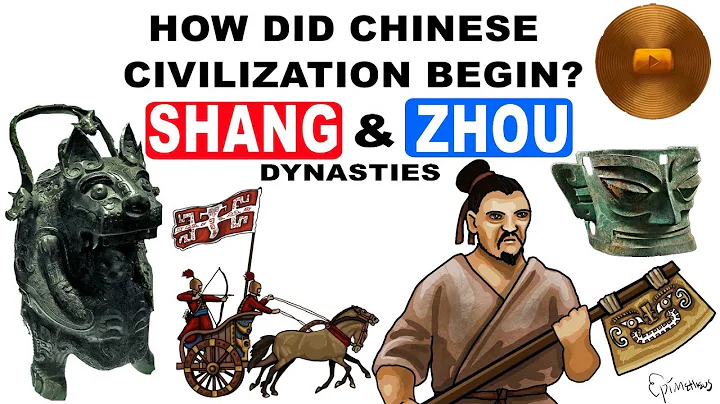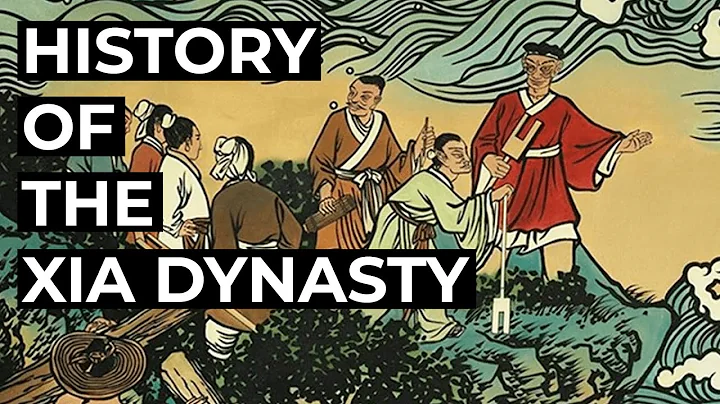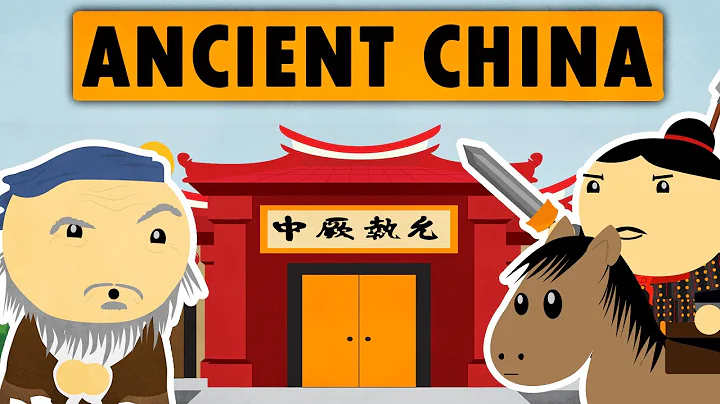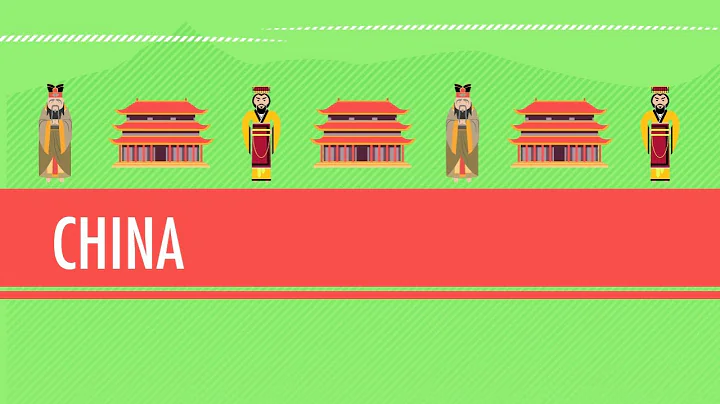The Shang Dynasty (approximately 16th century BC to the 10th century BC), also known as Yin Shang because the final capital was located in Yin, was a dynasty in Chinese history that followed the Xia Dynasty and was also the beginning of the era of historical records.
The leader of the Shang tribe of the original Xia Dynasty Shang Tang led the vassal states to establish the Shang Dynasty after the destruction of Xia in the Battle of Mingtiao. After seventeen generations and thirty-one queens, the last king King Zhou was defeated and died by King Wu of Zhou in the Battle of Muye. Nowadays, when people talk about the Shang Dynasty, they seem to think of the brutal King Zhou of Shang the heinous atrocities. How cruel was King Zhou of Shang? Are all his brutal acts true?
Modern people conclude that the extravagance and tyranny of King Zhou were mainly due to indulging in wine and sex. To please Daji, he made "new obscene sounds, northern dances, and extravagant pleasures" and used the money collected from the people to Build Lutai and fill it with rare treasures. He also "gathered dregs to make a hill, flowed wine to make a pond, hung meat to make a forest, and made naked people chase each other among them." He and his maids played there day and night.

and brutally carried out the torture of burning, burning people to death until their skin was charred and their flesh was mushy. In order to see what the fetus looked like in the human belly, the pregnant woman's belly was cut open, causing the death of both mother and child. The novel "The Romance of the Gods" pushed King Zhou to the pinnacle of cruelty and debauchery.
Looking at history, we find that in the Spring and Autumn Period, Zhou's only crime was "died for remonstrating". By the Warring States period , there were various versions of Bigan's death. Qu Yuan said he was drowned, Lu Buwei 's disciples said he was cut open and died.
And Western Han Sima Qian's "Historical Records" records that King Zhou "severely punished him, and had the method of cannon (burning)"; "Nine marquis women did not like prostitution, Zhou was angry, and killed them"; "Zhou Ehou's corpse" ; "Cut Bi Gan to reveal his heart and other things." But these things are not found in the Shang and Zhou historical materials "Shang Shu" and "Zhou Shu" in "Jinwen Shangshu". In the historical materials, there is no record of Zhou killing innocent people indiscriminately and being bloodthirsty.
In the Jin Dynasty , in Huangfumi 's pen, Zhou had another crime. Under the instigation of Daji, he dissected pregnant women to see the shape of the fetus. And Daji also gradually became a femme fatale, bringing disaster to the country and the people, so the theory of "female harm to the country" also came out. In short, King Zhou and Daji became worse and worse as time went by.
In fact, King Zhou should actually be called Emperor Xin, and later generations called him Zhou in order to belittle him. According to official history, King Zhou once conquered Dongyi , expanded the territory of Shang to southeastern China, and developed the Yangtze River watershed. In the war against Dongyi, King Zhou's side had the advantage.
In order to avoid future troubles, King Zhou even built a highway leading to Dongyi so that he could quickly mobilize troops to suppress the resistance of the Yi people. The merchant army fought all the way to the lower reaches of the Yangtze River like the autumn wind sweeping away fallen leaves, conquered most of the Dongyi tribes, captured tens of thousands of Dongyi people, and achieved a great victory.
Since then, the transportation between the Central Plains and the southeast has been developed, and the relationship between the central and southeast has become closer. The culture of the Central Plains region gradually spread to the southeastern region, allowing the local people to take advantage of the superior natural geographical conditions to develop production.
But this protracted battle almost brought down the Great Shang Dynasty. King Wu of Zhou in the western border learned that King Zhou's army was out and pointing eastward, and that the defenses in the capital were very weak. Under the guidance of some rebel Shang tribes, they launched a surprise attack and succeeded in a battle at Muye. At this time, King Shang's army Far in the southeast, unable to help, the merchant army in the Battle of Muye was not the elite division of the Shang Dynasty , but temporarily armed slaves and prisoners.

Even so, the Battle of Makino was fought very fiercely, rather than as the novel said, the slaves and prisoners turned against each other before the battle, and King Wu of Zhou won the victory almost without bloodshed.
In addition to recording the tyranny of King Zhou of the Shang Dynasty, "Historical Records" also records that he said:
"The emperor Zhou was talented in discerning diseases, and he was very sensitive in hearing and seeing; he had extraordinary physical strength, and he was able to handle fierce beasts; he knew enough to refuse advice and spoke out It is enough to hide his faults; he is proud of his ability and his reputation in the world, thinking that everyone is inferior to himself."
In other words, he is talented, quick in sight and hearing, extremely strong, can fight with wild beasts with bare hands, and is eloquent. But he is a bit arrogant and thinks that all talents in the world are inferior to him and cannot listen to other people's opinions.
When Mao Zedong evaluated Emperor Xin, he said:
"In fact, King Zhou was a very capable, literary and military man. He unified the southeast and consolidated the unification of Dongyi and the Central Plains, which was historically meritorious."
Actual As early as the Spring and Autumn Period, Confucius 's student Zigong had doubts about the tyranny of King Zhou of Shang Dynasty. He said: "Zhou's bad behavior is worse than this! It is because a gentleman is evil and lives in the lower class. Later generations will say Evil will be punished." Guo Moruo said: King Zhou was actually a very talented person. He made his contribution to the territorial expansion of ancient China. The so-called "Zhou defeated Dongyi" meant the development of the Huaihe River basin and Yangtze River Basin. The Western Zhou Dynasty took advantage of the opportunity of "Zhou to conquer the Eastern Yi" to advance eastward and destroy the Shang Dynasty.
What was the reason why King Zhou was vilified step by step? There are two reasons for this:
The need for political propaganda
First, the need for political propaganda. "The winner is the king and the loser is the bandit." Although the Zhou Dynasty at that time destroyed the Shang Dynasty, it was not a big country. To consolidate its political power, stabilize and win over its people, it naturally needed some political means.
King Zhou was certainly not without his shortcomings, so the Western Zhou emperors who destroyed King Zhou of Shang, as well as the subsequent imperial literati, arranged the affairs of the dead King Zhou again and again according to political needs, and finally made him a bad person. Someone who couldn't be more bad.

Women are a source of trouble
Secondly, there was Daji beside King Zhou, who could cater to the argument that "women are a source of trouble" and could logically lead the source of evil to women. Like Xia Jie 's Mei Xi, Zhou Youwang 's Baosi , Tang Minghuang 's Yang Guifei , they became troubles and scapegoats. "The Biography of Women" attributes all bad deeds to Daji alone, calling it "the theory that women bring disaster to the country."
It can be seen that although King Zhou of Shang was not a wise king, he was not as tyrannical as modern people think. It can be seen that the history we see now may not be the real history.





![[Documentary] China's Beginning - Xia Dynasty (2070 - 1600 BC) 夏朝 - DayDayNews](https://i.ytimg.com/vi/qXrkF5Nd4i8/hqdefault.jpg?sqp=-oaymwEcCOADEI4CSFXyq4qpAw4IARUAAIhCGAFwAcABBg==&rs=AOn4CLAzmoNIujveGHX8A8r4GMFJF8OcLA)


![[Documentary] China's Bronze Age - Shang Dynasty (1760 - 1520 BC) 商朝 - DayDayNews](https://i.ytimg.com/vi/VRQKp_vjVSY/hqdefault.jpg?sqp=-oaymwEcCOADEI4CSFXyq4qpAw4IARUAAIhCGAFwAcABBg==&rs=AOn4CLD9SozNJp9j4tyu8n5YbxGlrNAzlg)












